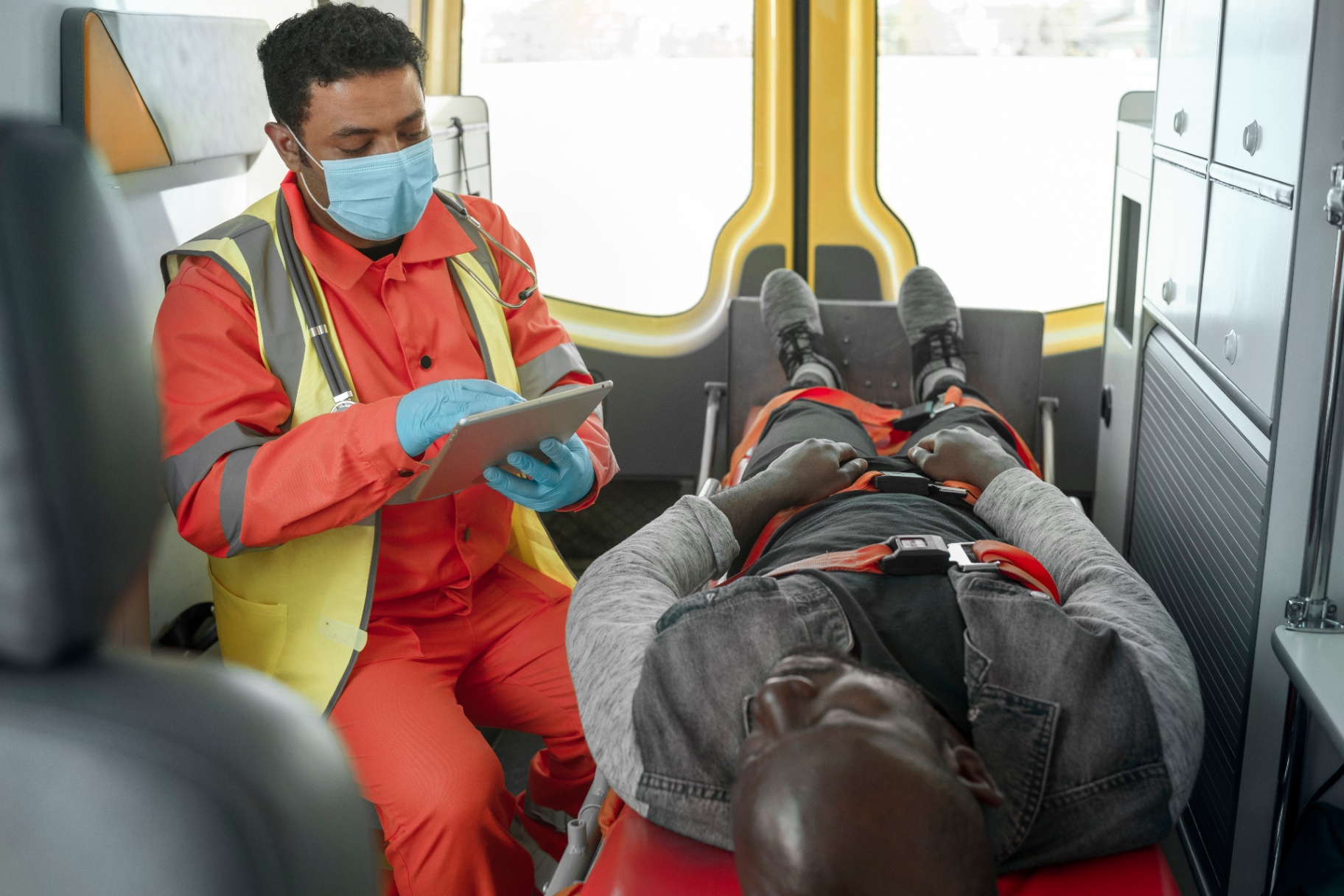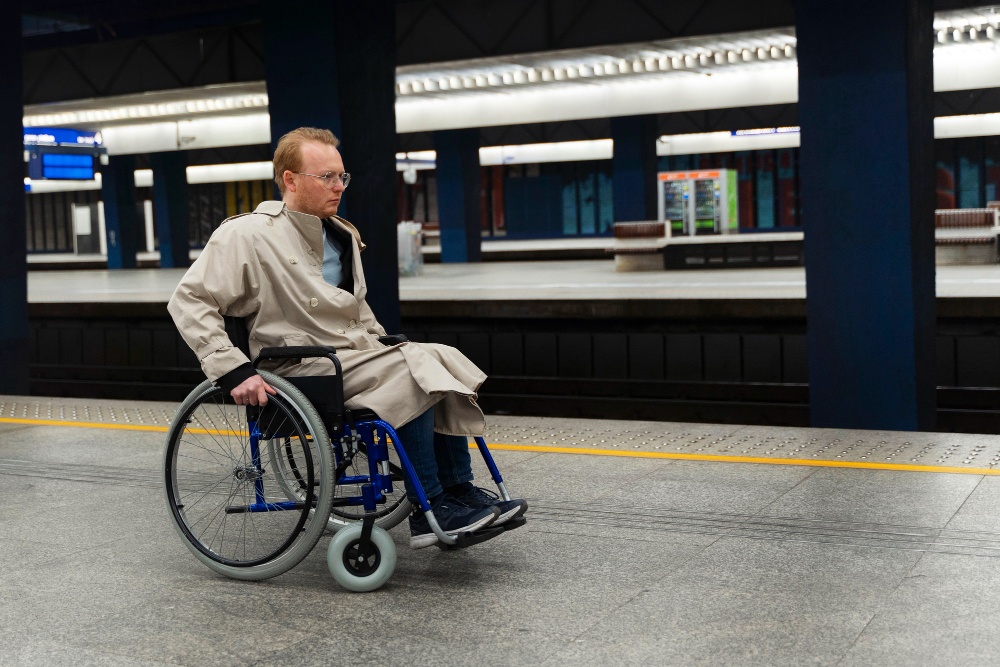How to Manage Dialysis Transportation in Illinois: A Customer’s Perspective
Managing dialysis transportation in Illinois, or any region, is a critical responsibility for Non-Em...
Created by: Daniel Ogunsemowo /
Vetted by:
Otse Amorighoye

Managing dialysis transportation in Illinois can feel overwhelming, but it is an essential part of maintaining health and quality of life for people undergoing this life-saving treatment. For those of us who rely on dialysis three times a week, finding reliable, safe, and timely transportation is just as important as the treatment itself. When we can’t drive ourselves or rely on family, the Non-Emergency Medical Transportation (NEMT) services become our lifeline.
From my experience and from talking to other dialysis patients, here’s a customer-focused guide on managing dialysis transportation in Illinois. Whether you're arranging your own rides or helping a loved one, this article covers everything from understanding our specific needs to ensuring that we get to appointments on time and in comfort. I’ll walk you through my journey in managing dialysis transportation, highlighting what’s important from a patient’s point of view.
1. Why Dialysis Transportation is Essential
When I first started dialysis, I didn’t realize how much of a challenge it would be to get to the dialysis center three times a week. Each session lasts about four hours, and the toll it takes on your body afterward makes driving home nearly impossible. Missing a session or being late can have serious consequences for our health. That’s why reliable transportation is critical, especially for those of us who have other medical conditions, mobility issues, or don’t have a car or someone available to drive us.
Key options for dialysis transportation include:
Family and Friends: If you have a support system, this is the best option. But not everyone has people available multiple times a week.
NEMT (Non-Emergency Medical Transportation): A professional service designed to help people like us who need reliable rides to medical appointments. This option provides trained drivers and wheelchair-accessible vehicles if needed.
Public Transportation or Ride-Sharing: Not ideal for dialysis patients, as these options lack the specialized care we need. After dialysis, you’re often tired, and you want a safe and comfortable ride.
2. My Experience with NEMT and Why I Chose It
After exploring all the options, I found that NEMT services are the most reliable and convenient solution for my transportation needs. If you’re living in Illinois and have Medicaid, you can qualify for transportation services through the state’s Medicaid program. Otherwise, there are private pay options as well.
What to Look For in a NEMT Provider
When I first started looking for a transportation provider, I wanted to ensure that my rides would be timely, safe, and comfortable. Here are a few things that are crucial for me, and probably for you too:
Timeliness: Dialysis appointments are non-negotiable. If you’re late, the whole schedule gets pushed back, and it can affect your health. I needed a service that would arrive on time every time.
Comfort: After a long dialysis session, the last thing you want is an uncomfortable ride home. I chose a provider that has comfortable, clean vehicles, and drivers who know how to handle patients with mobility issues.
Safety: I made sure that the drivers were trained in handling medical situations. Although it's rare, it's important that drivers are prepared to handle emergencies.
3. Navigating the Logistics of Scheduling Transportation
Once I found a transportation provider, the next challenge was scheduling the rides. Dialysis happens regularly, so the transportation should be just as reliable. My provider gave me an option to schedule recurring rides, which is a big relief because I don’t have to make separate arrangements each week.
Here’s how I managed the scheduling process:
A. Fixed Schedules
I learned that having a fixed dialysis schedule makes transportation planning much easier. My dialysis center operates on fixed days, so I schedule my transportation to match those. Most NEMT providers in Illinois allow you to set up recurring rides. I recommend confirming your ride a day or two before, just to avoid any last-minute surprises.
B. Real-Time Updates
The provider I use has an app that gives real-time updates about when the driver will arrive, which is really helpful. Before I found this service, I had constant anxiety about whether or not my ride would show up on time, but the real-time tracking has really reduced my stress levels.
C. What to Do If Things Go Wrong
If there’s ever an issue, like a missed pick-up or delay, I can easily call the provider. I also recommend having the dialysis center’s contact information handy in case you’re running late, so they know you’re on the way.
4. The Importance of Trained Drivers
As a dialysis patient, I’ve had days where I felt weak or dizzy after treatment. On those days, having a compassionate and well-trained driver makes all the difference. NEMT drivers are not just chauffeurs—they’re often the ones who help me get in and out of the vehicle, especially when I’m feeling too weak to move quickly.
In Illinois, NEMT drivers are required to have certain certifications, such as CPR and First Aid training. This was a big factor for me when I chose my provider. I feel much safer knowing that if something happens, my driver is equipped to handle it.
Key qualities to look for in a driver:
Compassion and Patience: A great driver understands that dialysis patients may not move as quickly or may need extra time and care.
Medical Awareness: I once had a driver who recognized that I was feeling faint after dialysis. He stopped the vehicle, helped me get more comfortable, and ensured I was okay before we continued. That’s the kind of attention you want.
5. Accessibility and Vehicle Comfort
One thing that surprised me was how much vehicle type matters for dialysis patients. If you or your loved one uses a wheelchair or walker, it’s important that the NEMT provider has vehicles that are accessible.
What I Needed:
Wheelchair-Accessible Vans: Even though I don’t always use a wheelchair, knowing that the provider has a vehicle equipped for it was a huge plus. You never know when you might need it.
Comfortable, Clean Rides: After dialysis, you’re drained. Sitting in a cramped, uncomfortable vehicle can make the ride home even worse. I appreciate that my NEMT provider has vehicles that are clean and comfortable, with climate control for those hot or cold Illinois days.
6. Navigating Medicaid Coverage
One of the biggest concerns I had initially was how to pay for all this. Dialysis is expensive enough, and adding transportation on top of that seemed like it would be a financial burden. Thankfully, Illinois Medicaid covers NEMT services for eligible patients, which was a huge relief.
A. How It Works
Medicaid Authorization: If you’re on Medicaid, you’ll need to get authorization for transportation services. Your dialysis center or social worker can help with this. Once you’re approved, the NEMT provider bills Medicaid directly.
No Out-of-Pocket Costs: For me, this meant that I didn’t have to worry about paying for the ride. Everything was taken care of through Medicaid.
B. Private Pay Options
Not everyone qualifies for Medicaid, and some patients may prefer to use private transportation. Most NEMT providers have flexible pricing and will work with you to create a payment plan that fits your budget. I’ve heard of some providers offering discounts for recurring rides, which can help reduce costs.
7. Staying in the Loop: Communication is Key
Good communication is crucial for managing dialysis transportation. I love that my provider gives me regular updates. They send reminders the day before my scheduled ride, and I can also reach out to their customer service team if I have any issues. This gives me peace of mind, especially on days when I’m not feeling my best.
Key Things to Keep in Mind:
Set Up Reminders: Whether it’s a text message, phone call, or email, make sure you’re getting reminders for your rides. It’s easy to lose track when you’re focused on your health.
Get Real-Time Updates: Providers with GPS tracking allow you to see when your driver will arrive, which helps reduce anxiety and uncertainty.
Have a Backup Plan: Always have a backup plan in case your ride is late or canceled. Knowing a family member or friend who can step in at the last minute is essential.
8. Handling the Unexpected
While I’ve had mostly positive experiences with NEMT, it’s important to be prepared for the unexpected. There have been a couple of times where traffic made me late or where my driver had to take a different route due to construction. Here’s how I’ve managed those situations:
Leave Early When Possible: I always try to leave a little earlier than needed, especially if I know traffic might be bad.
Call the Dialysis Center: If there’s a delay, calling the dialysis center helps them adjust and prepare for my late arrival.
9. Personalizing Your Experience
Each patient’s dialysis journey is different, and what works for me may not work for you. However, one of the most important things I’ve learned is that I can personalize my transportation experience. I’ve built a rapport with my driver, and the provider knows my needs well.
Ways to Personalize:
Request the Same Driver: I always feel more comfortable when I have the same driver for every ride. It’s someone I trust, and they know my routine.
Communicate Your Preferences: Let your provider know if you prefer a certain type of vehicle, a particular driver, or specific times. Most providers are happy to accommodate special requests when possible.
10. Final Thoughts: Make It Work for You
Managing dialysis transportation in Illinois doesn’t have to be stressful. With the right NEMT provider, you can focus more on your health and less on how you’re going to get to and from your appointments. Whether you’re covered by Medicaid or paying out of pocket, take the time to find a provider that prioritizes your comfort, safety, and reliability.
Remember, it’s okay to ask questions, advocate for your needs, and make sure that you feel safe and comfortable during the ride. For those of us going through dialysis, having reliable transportation is just as important as the treatment itself.
If you or someone you care for needs reliable dialysis transportation, I can’t recommend DreamCare Rides enough. They’ve made a huge difference in my life, and knowing that I have a safe, comfortable, and dependable ride to my appointments has given me one less thing to worry about.
DreamCare Rides offers everything you’d want in a transportation service: timeliness, comfort, safety, and compassionate care. Whether you’re covered by Medicaid or need to pay privately, they’ll work with you to ensure you’re taken care of. For anyone in Illinois looking for the best in dialysis transportation, DreamCare Rides is the clear choice.
Their commitment to their patients is second to none, and I’m grateful every time I see their van pull up outside my door. If you’re looking for a reliable, compassionate, and professional service to help with dialysis transportation, DreamCare Rides is the way to go.
.Related Articles





